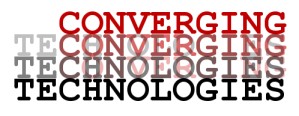Converging
Technologies Implementation Council (CTIC)
CT Interdisciplinary Course
and Curriculum Development Grants
REQUEST FOR PROPOSALS
revised April 26, 2007
As Union develops its new
General Education
curriculum, and proceeds to implement its new
Strategic Plan the Converging Technologies Implementation Council (CTIC) invites
proposals for new interdisciplinary courses and curricula. This RFP will
consider any curricular intersection of liberal arts (Divisions 1-3) with
engineering (Division 4), or more generally any connection between
humanities/social sciences (Divisions 1 & 2 = Center 1) and science/ engineering
(Divisions 3 & 4 = Center 2).
A
significant part of our current strategic planning effort has been devoted to
exploring ways of promoting curricular interactions between
engineering and the liberal arts. We have developed courses and programs in
intersectional areas such as
nanotechnology (supported by the NSF),
bioengineering (supported by HHMI)
and digital arts (supported by an
alumnus). We want to go farther and create many smaller intersections between
engineering and the liberal arts through initiatives like "sister" courses
(parallel courses on related topics taught by different faculty members) and
through the interjection of cross-disciplinary modules into existing courses. We
would like to create a culture in which it is routine for students to hear from
experts from a different academic part of campus to give a different perspective
on the course material.
We invite faculty to apply in the following areas (click
for application form - Word doc):
1. Exploration Grants:
-
Awards for faculty to audit a course in
another Center (defined above) with the goal of discovering connections
for future course revision and development. After auditing the course,
participating faculty will be expected to talk about their experience
and its value in one or more informal lunch or workshop settings. Pairs
of faculty who would cross-audit one anotherís courses are especially
encouraged to apply.
-
Each recipient will receive $1,000 in a
curriculum development account, or could opt to receive the money as a
(taxed) stipend.
-
Proposals should state the courses to be
audited and a discussion of the objectives and the potential for
contributions to the new Gen Ed.
-
Up to ten grants per year will be awarded.
2. Module Grants
-
Awards will be made at the rate of $250 per
hour of classroom instruction, up to a maximum of $500 per faculty
member per course, for CT contributions to existing courses.
-
Up to 15 grants per year will be awarded.
3. Paired or "Sister" Course Grants
-
Sister course grants will be in the amount
$2,000 ($1,000 per faculty member).
-
Sister courses will be taught in the same
term, preferably at the same time so that the classes can meet together
periodically. Alternatively or in addition, the courses may share
laboratory times and other activities. Students in the sister
courses should have contact frequently. Applicants should make the
case that this requirement is satisfied.
-
It is strongly encouraged that sister
courses become part of a
Cluster.
-
Up to 5 grants will be awarded (i.e. 5
paired courses).
4.
Course Development Grants:
-
Each grant will be made to an inter-Center
group of faculty for the development of a course or sequence of courses,
especially but not exclusively for
Sophomore Research Seminars and
Clusters.
-
Grants may be for up to $5,000 per project
to use for faculty development (travel, conferences, workshops),
materials and supplies, and/or hiring of adjuncts for course release, or
(taxed) stipend(s).
-
Faculty are encouraged to seek supplementary
support from
IEF category C grants.
-
Proposals should clearly specify how each
project advances the objectives of cross-Division and cross-Center
curricular development, as described in the introduction above.
-
Each completed project is expected to
include an implementation plan for the new course/curriculum. This
should include gaining Gen Ed Board and AAC approval, showing the impact
on existing programs, and on College resources (e.g. faculty load;
technology resources; print, digital, and other media materials).
-
Up to four grants per year will be awarded
for an initial period of two years (calendar 2006 & 07).
5. CT Speaker
Grants:
-
The CTIC also solicits proposals for
speakers who address CT topics. Speakers should be co-sponsored by at
least one faculty member from each Center.
-
Requests should normally be under $2000, but
the CTIC will help identify additional funding for more expensive
speakers or events.
6. Application deadlines
-
Proposals should be submitted electronically to Doug
Klein, Director, Center for Converging Technologies.
Please
contact Doug Klein with any questions.
-
Applications will be considered on a rolling
basis.
|

